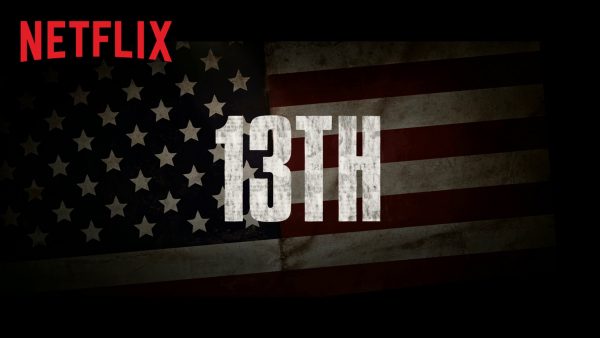13th, an intrusive documentary examining the modern American criminal justice system, screened by The Office of Diversity and Advocacy (ODA) as part of Black History Month, leaves audiences in awe.
Its true power comes from putting the viewer in the shoes, or rather the orange jumpsuits, of the oppressed slaves of modern America.
13th scrutinizes the system which has been built to accumulate profit and win elections by pitting one race against the other through once explicit, but now subtle, methods of fear-mongering, which ultimately portray the black man as violent and volatile.
The title refers to the 13th Amendment of the US Constitution ratified in 1865, following the Civil War that ended slavery.
As Michelle Alexander, civil rights advocate and best-selling author of The New Jim Crow: Mass Incarceration in the Age of Colorblindness, explains in the movie, slavery was abolished for all but criminals.
“Neither slavery nor involuntary servitude, except as a punishment for crime whereof the party shall have been duly convicted, shall exist,” reads Section I of the Amendment.
This legal loophole in the Amendment allows the continued use of forced labor – so long as the laborer is a convicted felon – to the tune of billion dollar corporate profit and, in fact, endorses mass incarceration in the US for financial gain.
Alexander argues that this exists as an alternative to, and as the evolution of, slavery and the Jim Crow Laws, a set of legislative acts in the 19th century that enforced racial segregation.
As she puts it, mass incarceration in the US and the seemingly coincidental prevalence of disproportionate numbers of black prisoners is a consequence of major “racialized” systems of control deployed in the States.
She writes in her book that these racist systems of control ensure “the subordinate status of a group defined largely by race.”
The film does its share of research. For example, 25 percent of all people behind bars in the world happen to be imprisoned in the US even though Americans make up just five percent of the entire planet’s population.
One in three black men is likely to end up in prison, in comparison to one in 17 white males.
In 1970, there were about 200,000 inmates; today, the prison population is more than 2 million.
The documentary examines the 1915 racist film The Birth of a Nation, which glorified the Ku Klux Klan (KKK); the civil rights movement; the Civil Rights Act of 1964; and both Richard Nixon and Ronald Reagan’s declaration of the war on drugs.
The two US presidents used the rhetoric of the war on drugs to justify imprisoning minorities and to ultimately induce fear that would lead voters to choose the Republican candidate who would protect them from the black or Hispanic criminal.
The film’s director Ava DuVernay consistently supports her thesis by using both historical footage and interviews, such as clips of former President Richard Nixon calling for ‘Law & Order,’ which resulted in exploding prison populations.
This ‘Law & Order’ policy enabled the government to target black men and women. It also subtly depicted black men as predators and criminals without a moral compass through the usage of subtle terms and political jargon.
John Ehrlichman, who was assistant to Nixon for domestic affairs, was recorded saying, in reference to using vague rhetoric during the drug war campaign to target minorities, “Did we know we were lying? Of course we did.”
The documentary eloquently argues that those racially based drug busts along with Jim Crow Laws were means for the domination of African Americans.
As the movie nears its end, DuVernay revisits the 13th Amendment and emphasizes that small changes will not reform the current system. She instead argues that the system has to be rebuilt.
